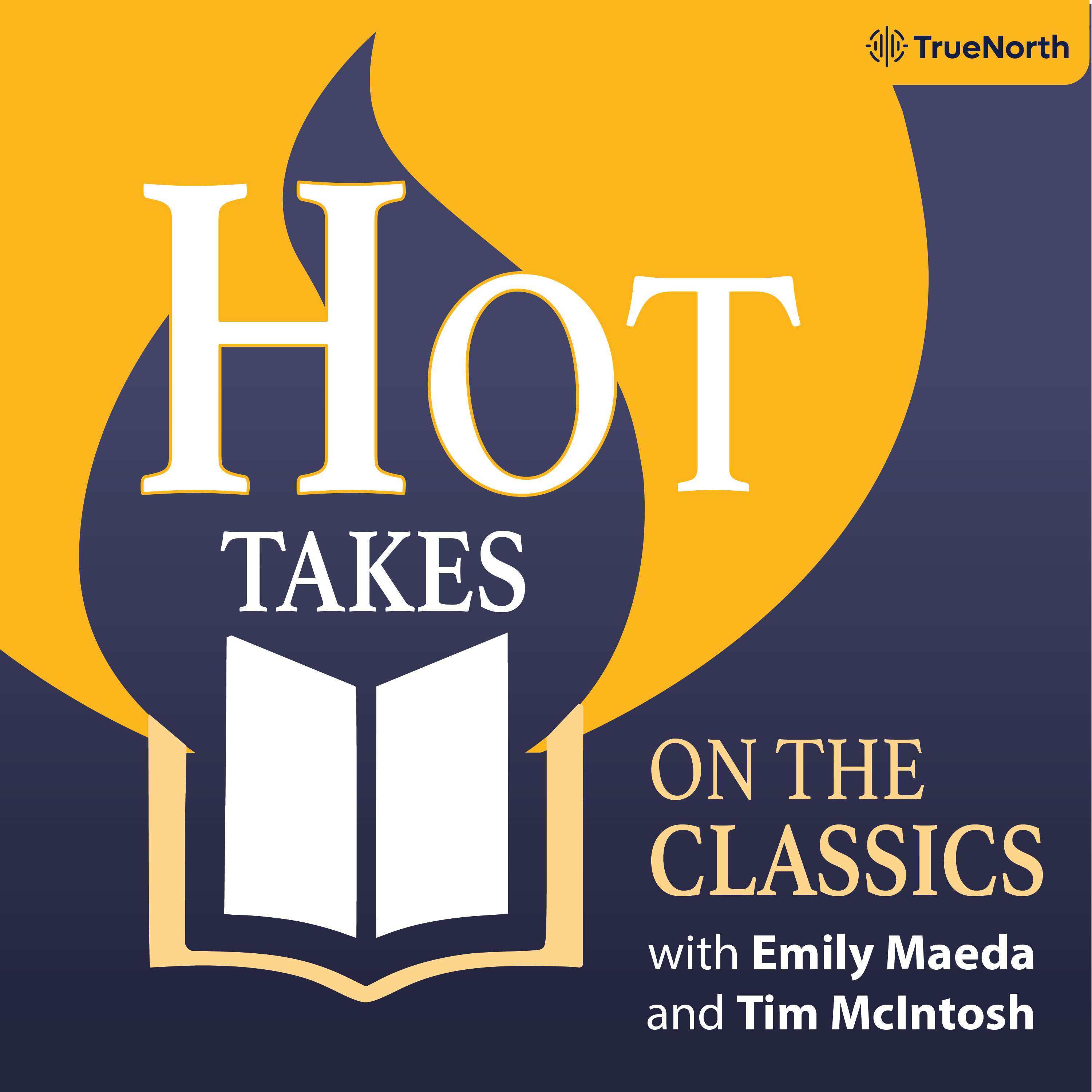Episode 6: The Psychomachia: Was C.S. Lewis Wrong About Prudentius?
Description
Description
In this episode of Hot Takes on the Classics, Tim McIntosh and Emily Maeda explore Prudentius’ Psychomachia (“The Battle of the Soul”). This groundbreaking Christian allegorical poem reimagines heroism as a spiritual struggle. Written in the late fourth century, the poem depicts virtues and vices as warriors battling within the human soul. Tim and Emily discuss Prudentius’ innovative use of epic poetry, his influence on later literature, and the striking portrayal of virtues as women. Emily’s hot take challenges C.S. Lewis’ critique, arguing that the Psychomachia deserves recognition for its imaginative and moral significance.
Show Guide
00:00 Opening Quote from Psychomachia and Episode Overview
01:12 Emily’s Connection to Prudentius and the Poem’s Historical Context
05:33 Prudentius’ Life, Legacy, and Lesser-Known Works
08:15 Epic Structure and the Battle Within the Soul
10:01 Virtues vs. Vices: The Allegorical Battlefield
15:36 Allegory’s Challenges and Legacy in Western Literature
22:37 Highlights of Key Battles in Psychomachia
29:42 Tim’s Reflections on the Poem’s Continued Relevance
30:56 Emily’s Hot Take: Reassessing C.S. Lewis on Prudentius
36:15 The Role of Women as Virtues in the Psychomachia
36:36 Episode Wrap-Up and Teaser for the Next Discussion
Key Topics & Takeaways
Spiritual Heroism: Psychomachia redefines heroism, focusing on internal battles against sin rather than external conquests, aligning with Christian ideals.The Power of Allegory: By personifying virtues (e.g., Faith, Patience, Sobriety) and vices (e.g., Lust, Wrath, Pride) as warriors, Prudentius dramatizes the soul’s moral struggles in vivid detail.Prudentius’ Cultural Legacy: As the first major Christian poet, Prudentius fused classical epic traditions with Christian themes, influencing writers from Dante to John Bunyan.Virtues as Women: The Psychomachia portrays virtues as powerful female warriors, offering a bold reinterpretation of heroism.Reassessing Lewis’ Critique: Emily challenges C.S. Lewis’ dismissal of the poem as overly literal, asserting that its allegorical style and imaginative depth are foundational to Christian literature.Questions & Discussion
How does Psychomachia redefine heroism for a Christian audience?Explore how the poem shifts the focus from external conquests to internal spiritual struggles, emphasizing moral virtue.What role does allegory play in Psychomachia?Discuss the effectiveness of personifying virtues and vices as warriors and how this approach impacts its resonance with modern audiences.Why did C.S. Lewis criticize Psychomachia, and is this critique fair?Analyze Lewis’ views on the poem’s allegorical nature and Emily’s counterargument about its lasting imaginative and moral power.How does Prudentius’ depiction of women as virtues challenge traditional notions of heroism?Reflect on the cultural and artistic significance of virtues being portrayed as strong, resilient women.Suggested Reading
Psychomachia by PrudentiusThe Spirit of Early Christian Thought by Robert Louis WilkenThe Virtues and Vices in the Arts by Sean Tucker
More Episodes
Published 12/03/24
Description
In this debut episode of 'Hot Takes from the Classics,' hosts Tim McIntosh and Emily Maeda delve into one of the greatest war epics ever written, Homer's Iliad. They discuss the themes of honor, the brutality of war, the intoxicating nature of battle, and the challenges of...
Published 11/26/24
Hot Takes on the Classics is no dusty, academic approach to great books. It’s a gossipy, exciting discussion about the best literature ever written. Hosted by Tim and Emily, who are veteran teachers and long-time friends, Hot Takes is packed with playful debate, meaningful speculation, and hearty...
Published 11/26/24


